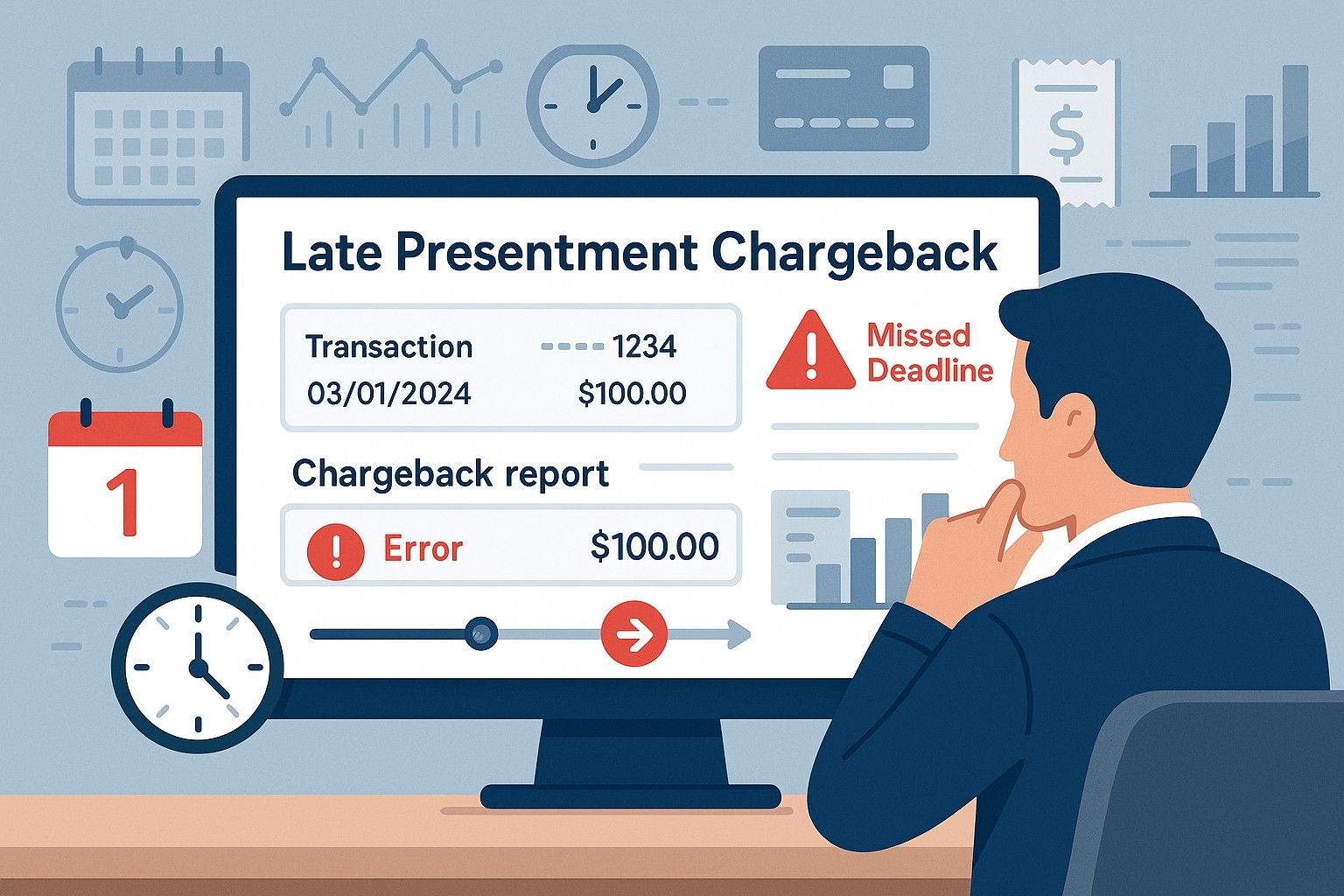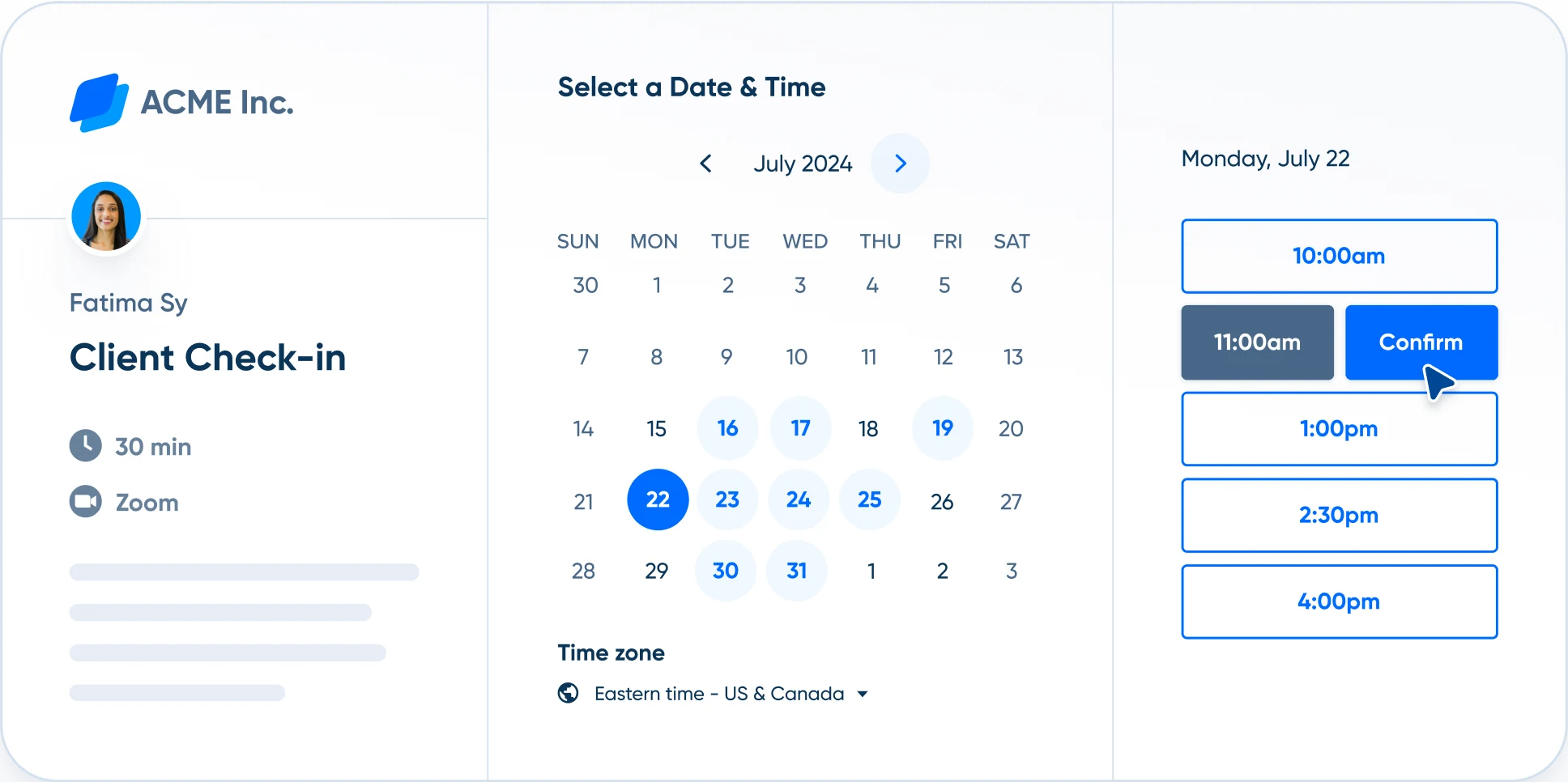Chargeback Management Services - Dispute Response Aug/ 22/ 2025 | 0
Late presentment chargebacks are a common yet often misunderstood aspect of the chargeback process. This blog post explains what they are, how they affect merchants, and the best strategies for handling and preventing them.
What is a Late Presentment Chargeback?
A late presentment chargeback occurs when a merchant fails to submit a transaction for processing within the required time frame, usually by the deadline set by the card issuer or payment network. This leads to the cardholder being able to dispute the transaction due to the delay, potentially resulting in financial losses for the merchant.
How Does a Late Presentment Chargeback Work?
- Transaction Submission Delay: The merchant does not submit the transaction within the allowed time.
- Customer Dispute: The customer notices the delay and files a chargeback.
- Chargeback Issued: The bank processes the dispute and, in most cases, automatically reverses the charge.
Causes of Late Presentment Chargebacks
There are several reasons why late presentment chargebacks may occur, including:
- Merchant Processing Delays: Merchants may experience delays in processing payments due to technical issues or human error.
- Incorrect Transaction Information: If the merchant submits incorrect information, the payment may be delayed, leading to chargebacks.
- Banking or Payment Gateway Issues: Technical glitches or miscommunication between payment gateways and financial institutions can result in delays.
How to Prevent Late Presentment Chargebacks
Preventing late presentment chargebacks requires careful attention to transaction processing and payment systems. Here are a few tips to help reduce the risk:
- Timely Payment Submission: Ensure that all transactions are submitted within the required time frame.
- Clear Communication with Payment Processors: Regularly communicate with payment processors to ensure smooth transaction processing.
- Enhanced Internal Controls: Implement automated systems to ensure that payments are processed accurately and on time.
- Regular Monitoring: Stay vigilant by monitoring transactions for any unusual delays or errors that may lead to chargebacks.
Consequences of Late Presentment Chargebacks
If a merchant consistently experiences late presentment chargebacks, it could lead to:
- Increased Chargeback Ratio: A higher chargeback ratio can negatively affect a merchant’s relationship with their payment processor.
- Fines and Fees: Excessive chargebacks can result in financial penalties for the merchant.
- Account Termination: In extreme cases, merchants may face the termination of their payment processing account.

Email us anytime!
Email customer service 24/7

Call us anytime!
Reach customer care 24/7 at +1 (888) 927-5152
Key Takeaways
Late presentment chargebacks can significantly impact a business’s bottom line. By understanding the causes and implementing preventive measures, merchants can reduce the likelihood of these disputes. Keeping up-to-date with industry best practices and payment timelines is essential for effective chargeback management.


